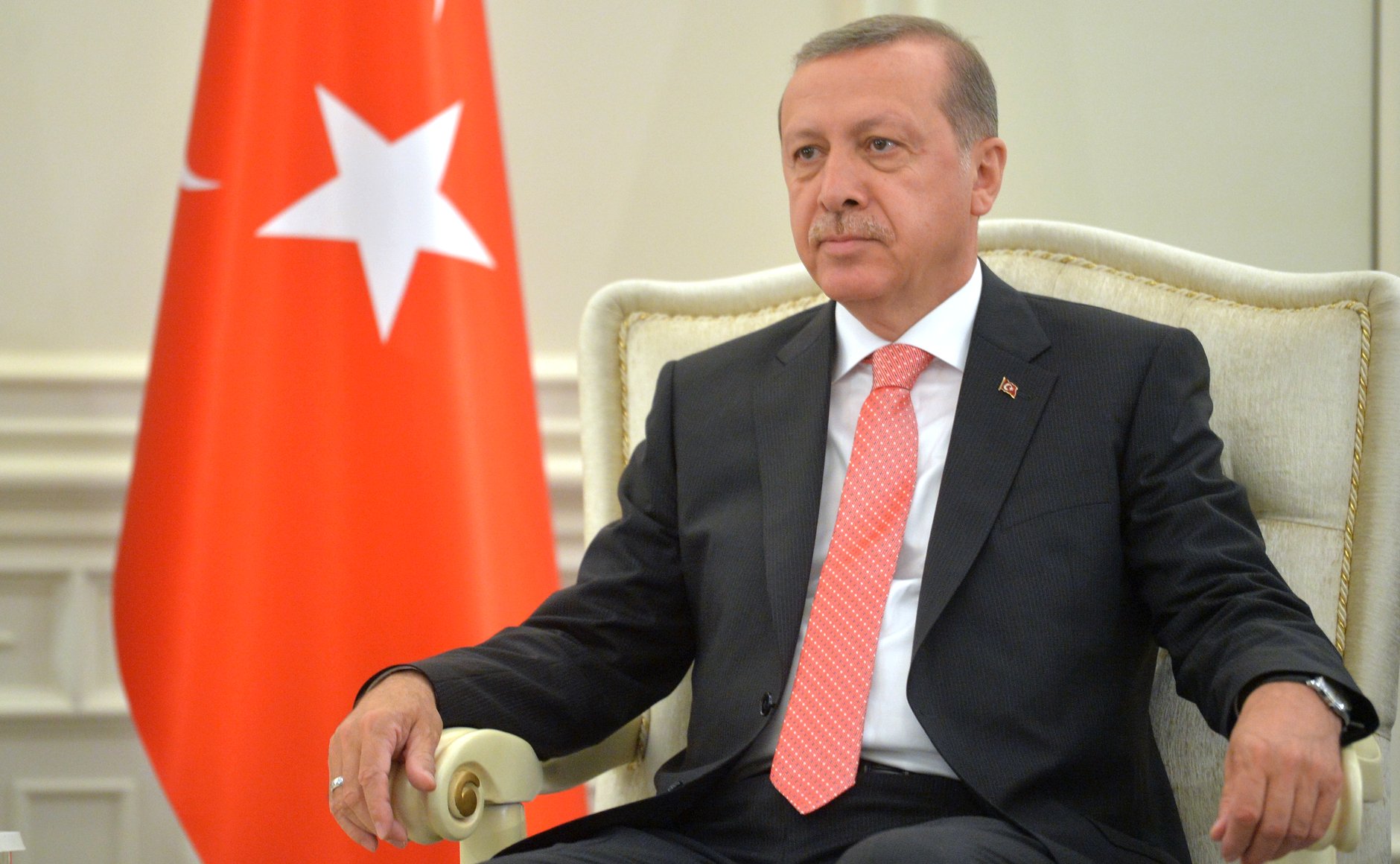Turkish President Recep Tayyip Erdoğan is in the midst of one of his periodic bouts of Israel-hatred, lashing out at the Jewish state and its leaders with all the insults (“Nazi,” “apartheid,” “child-killers” and so forth) that he has deployed with such aplomb in the past.
Yet the heat of the would-be sultan’s anger—the constant scowl, the gangster strut, the unnerving sense that he gains emotional release through these fulminations—is not quite the same thing as a tangible threat. With each one of these quarterly (on average) rants, he lets slip that there is nothing he can actually do about Israel beyond denouncing it.
For that reason, Erdoğan’s call this week for a boycott of Israeli goods embracing all 57 member states of the Organization of Islamic Co-operation (OIC) sounded more like a howl of frustration than anything else. The vague, sweeping manner with which he suggested the freezing of trade in both directions—“No product should be brought from there anymore. Naturally, we will assess this situation in the same way”—brings to mind all those pesky matters of detail that Erdoğan’s aides are probably loath to bring up for fear of offending him.
Like, for example, the fact that Turkish businesses place a supreme value on their trade with Israel, and that, in the final pinch, Turkey’s economy needs Israel’s a little more than the other way around. In 1995, Israel’s imports from Turkey were valued at $250 million. Come 2017, Israelis purchased nearly $3 billion of Turkish goods.
Not only that, the volume of trade between Turkey and Israel has increased year-on-year, even during the 2010-16 period, when Erdoğan last kicked the Israeli Ambassador out of Ankara. Israel is a highly regarded foreign market for Turkey because—as a recent paper from Israel’s Moshe Dayan Center explained it—Israel’s per capita GDP, one of the world’s highest, “allows high consumption rates that were, and still are, a significant target for Turkish exporters in all sectors. … The annual Israeli GDP and also the Private Sector Consumption [PSC] are more than 30 percent higher than Turkey’s GDP, even though Israel’s population is only a tenth of Turkey’s.” That perhaps explains why Mehmet Buyukeksi, the chairman of the Turkish Exporters Assembly, told The Jerusalem Post in May last year that trade between the two countries could reach $10 billion by 2022.
As distasteful as Erdoğan would no doubt find such buoyant projections, he has done little to indicate that he intends to curb private-sector commerce between Turkey and Israel. Were he to suspend trade with Israel by imposing politically motivated sanctions, the consequences of such a vendetta for Turkey—for its currency, for foreign investor confidence, for its already frayed relations with the United States and Europe, and for the domestic livelihoods that have become reliant on the Israeli market—would be disastrous.
Indeed, the only countries that can afford to continue advocating an economic quarantine of Israel are the handful, like Iran, which are boycotting it already. With its relationships in every corner of the world, including in its own region, Israel has successfully separated commercial ties from national security and regional politics from trade agreements. This trend is not one he can realistically hope to reverse.
And yet, from his vantage point, the struggle with Israel is perhaps just beginning. It is a little more than 12 months since his victory in a national referendum granted him dictatorial powers, and it is, at present, a little more than a decade before he will leave office—by some calculations, he could still be Turkey’s president in 2034, at the age of 81.
Nothing that Erdoğan has said or done in the past 15 years at Turkey’s helm suggests that he will ever play the role of the great conciliator, as was hopefully imagined by more than one U.S. administration and more than one Israeli prime minister. Instead, he repaid that confidence by becoming, in February 2017, the first-ever leader of a NATO member state to exhort a 6-year-old girl to carry out a suicide operation. “She has the Turkish flag in her pocket,” Erdoğan said of the sobbing child, dressed in the uniform of the Turkish Special Forces, who joined him on stage at his ruling AKP Party’s annual congress. “If she becomes a martyr, Insh’allah, this flag will be draped on her.”
As ever, the ongoing Erdoğan spectacle will divide its audience between those who see the Turkish president as a pragmatist given to theatrics, and those who see an imperial purpose behind his criminal military incursions into Syria, his political maneuverings with the Russians and the Iranians, and his broader projections of power and influence in the Middle East, in the Balkans and in the sizable Turkish diaspora throughout Western Europe.
In the context of the victory he rightly anticipates in Turkey’s snap June 24 elections, Erdoğan may yet decide that announcing an official boycott of Israel—even when he knows it cannot be effectively implemented—will provide him with an extra fillip in an Islamic world that he aspires to lead. That would certainly mean an ugly propaganda campaign that targets Israel and all those who consume its products, very possibly accompanied by laws that restrict commercial and political ties with Israel as well. It will win Erdoğan the plaudits of Hamas and admiring editorials in Iranian media outlets. But not much more.


























